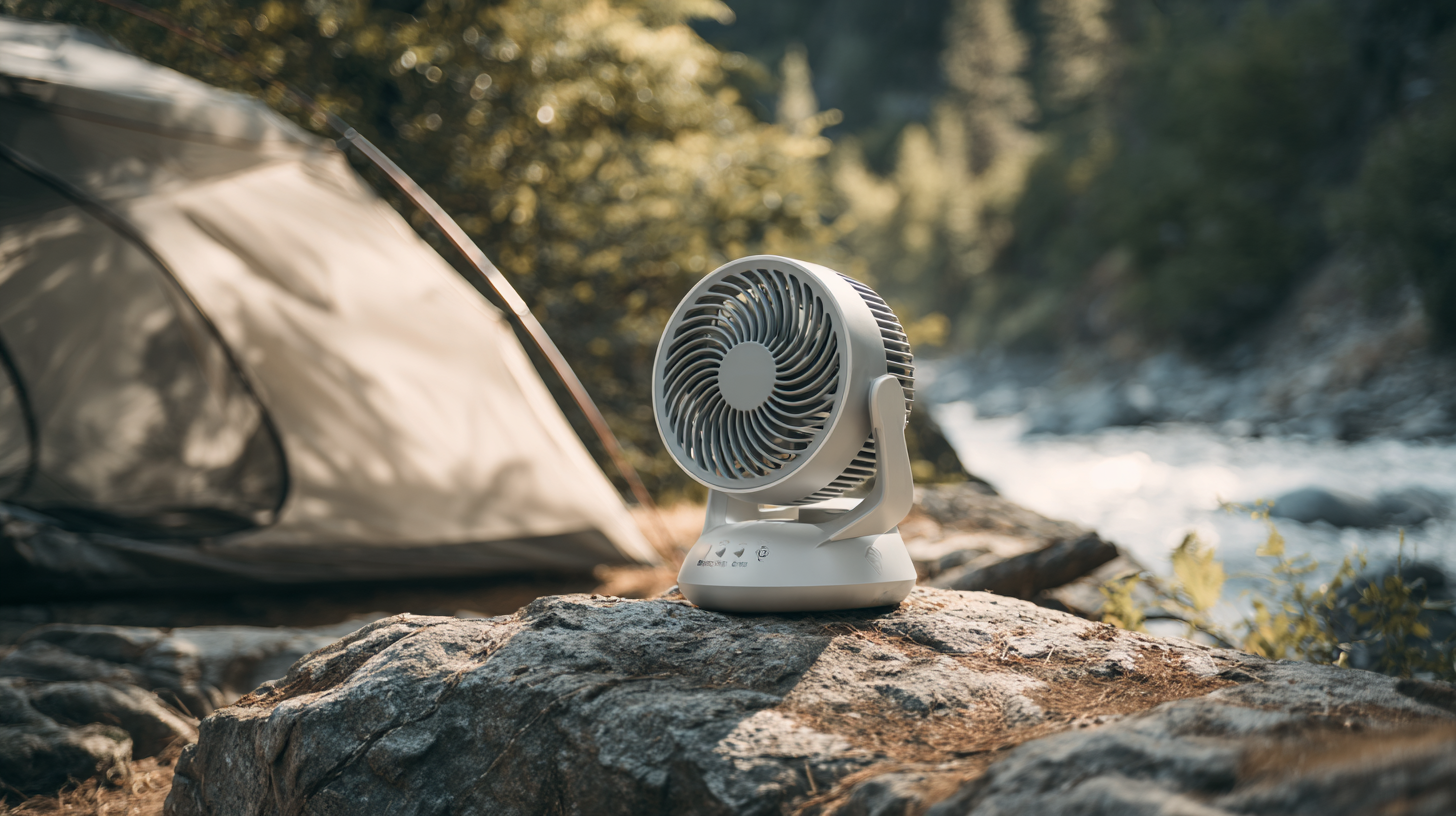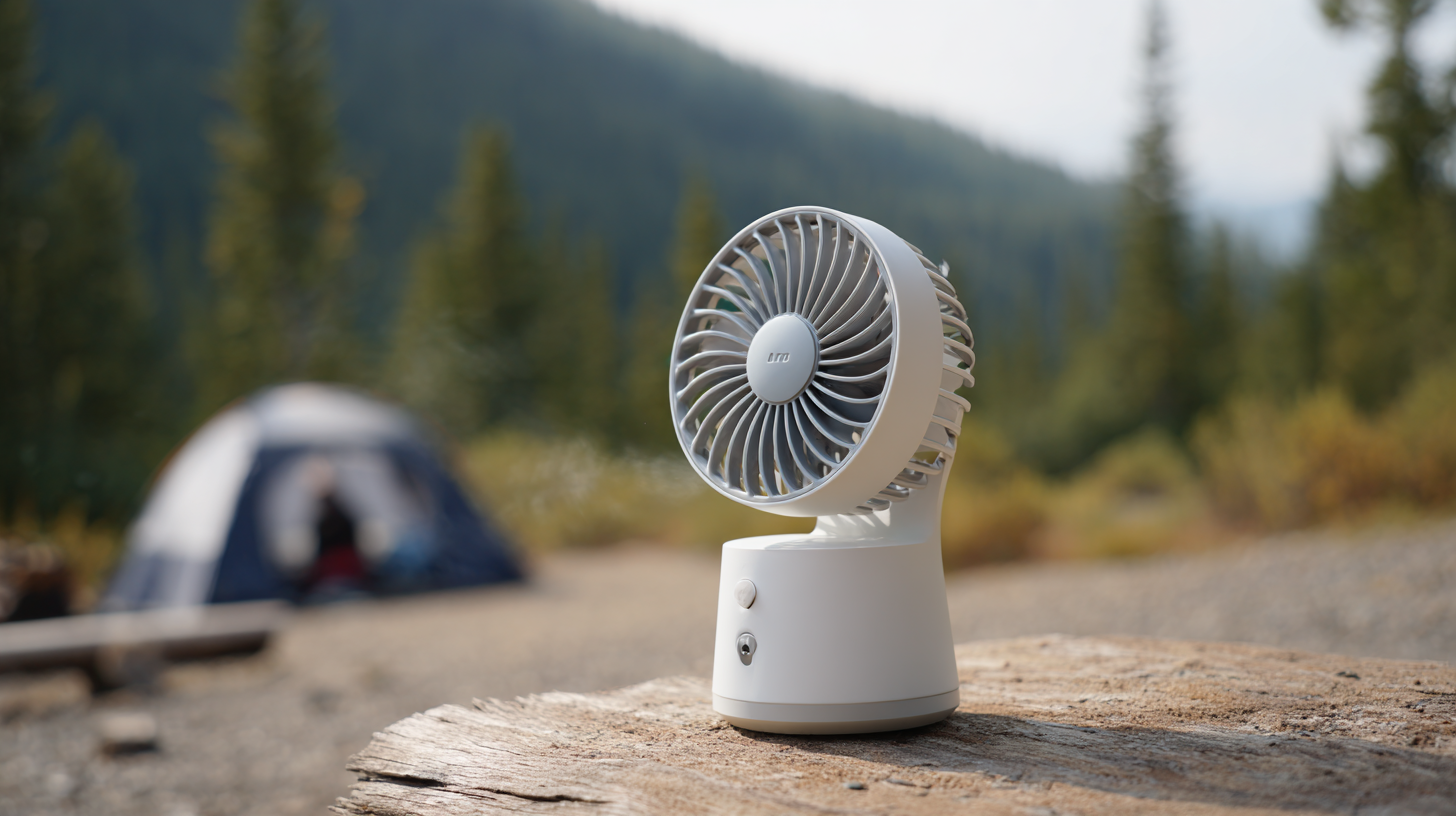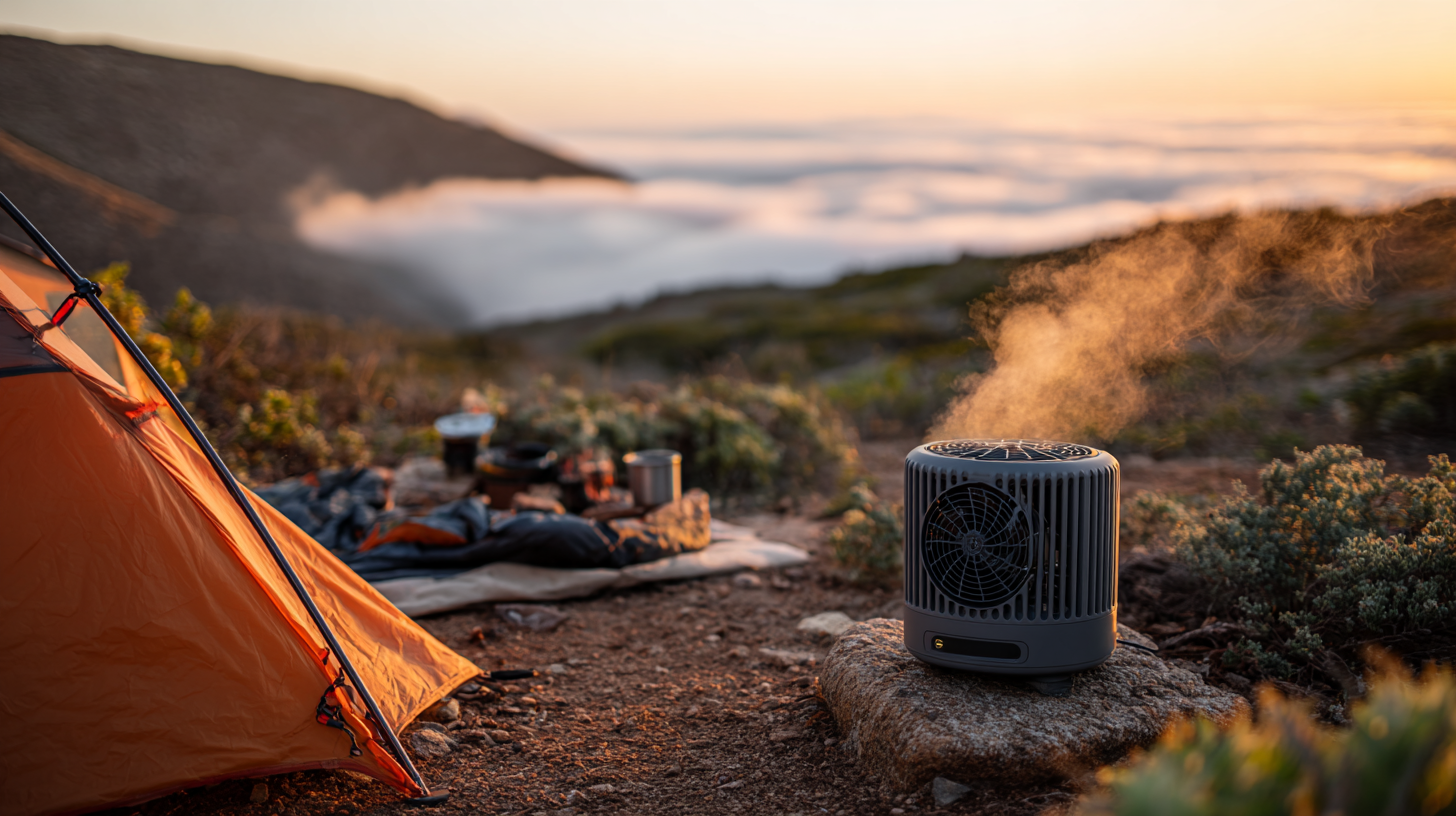Camping has become one of the most popular outdoor activities, with approximately 48.2 million households in the U.S. engaging in camping annually, according to the 2021 North American Camping Report. As outdoor enthusiasts venture into nature, maintaining comfort during warm summer nights is crucial, leading to the rising demand for effective cooling solutions. While traditional Camping Fans have long been favored for their portability and convenience, there is a growing interest in exploring innovative alternatives. These alternatives not only offer varied features such as solar-powered options and multi-functional designs, but they also cater to diverse needs such as energy efficiency and space-saving. In this blog, we will delve into the unique features and practical uses of the best Camping Fan alternatives, ensuring that your outdoor experience remains cool and enjoyable, no matter where your adventures take you.

When venturing into the great outdoors, managing temperature effectively is crucial for an enjoyable camping experience.
Research from the Outdoor Industry Association reveals that nearly
70% of campers consider temperature regulation a top priority during their trips.
With outdoor temperatures often exceeding 90°F, especially in summer months, having a good camping fan can significantly enhance comfort.
Studies indicate that prolonged exposure to high temperatures not only affects mood and energy levels but can also lead to
heat-related illnesses, making the choice of equipment essential for safety.
Moreover, a report from the National Park Service shows that campers often underestimate
the temperature variations they can encounter, with nighttime temperatures dropping over 20°F
in some areas. This makes portable cooling solutions, like camping fans, vital not just for daytime comfort but also for ensuring a restful night’s sleep.
A suitable camping fan can create a cooling breeze, reducing perceived temperatures by up to 10°F,
thereby enhancing the camping experience and encouraging longer stays in the great outdoors. Investing in a quality fan alternative ensures that
temperature management remains an integral part of every camping trip.
When it comes to enjoying the great outdoors, having the right gear can significantly enhance your camping experience. While traditional camping fans are often bulky and limited in functionality, innovative alternatives are now taking the spotlight. The top five unique camping fan alternatives stand out with features that not only improve performance but also cater to the specific needs of campers.

One noteworthy option is solar-powered fans, which harness sunlight to provide a continuous breeze without reliance on batteries or electricity. This eco-friendly alternative is perfect for campers seeking sustainability. Another fascinating choice is the compact, portable clip-on fan, which can be easily secured to tents or backpack straps, offering directional airflow wherever you need it most. Moreover, some modern camping fans come equipped with additional features such as built-in LED lights or USB charging ports, making them versatile tools for light and power during your adventures.
Lastly, battery-operated misting fans have emerged as a game changer, providing both cooling air and a refreshing mist, ideal for hot summer days. This dual functionality sets them apart from standard options, ensuring that even the warmest camping trips remain comfortable. With these innovative features, these camping fan alternatives are redefining how we stay cool in the wild, making them must-have companions on any outdoor excursion.
When selecting a camping fan, several key factors should be considered to ensure optimal performance and user satisfaction. Firstly, the fan’s power source plays a crucial role. A report from the Outdoor Industry Association highlights that 70% of campers prefer portable, battery-operated options for their lightweight and convenience. These fans should ideally offer multiple speed settings and longer battery life to accommodate varying conditions, especially during those hot summer nights.
Another essential consideration is the fan’s design and durability. According to a survey by the American Camping Association, 65% of campers prioritize products that can withstand harsh outdoor elements. Therefore, fans with water-resistant features and robust materials are highly recommended. Furthermore, the noise level should not be overlooked; an analysis by GearJunkie reported that quieter models significantly enhance the camping experience, allowing for a peaceful night's sleep while still providing much-needed airflow. By focusing on these factors—power source, durability, and noise level—campers can choose the right fan that meets their specific needs.
| Fan Type | Battery Life | Weight | Noise Level | Price Range | Unique Features |
|---|---|---|---|---|---|
| Portable Rechargeable Fan | Up to 30 hours | 2 lbs | Quiet | $30 - $60 | USB charging, multiple speed settings |
| Solar-Powered Fan | Unlimited (with sun) | 3 lbs | Moderate | $50 - $100 | Eco-friendly, portable solar panels |
| Clip-On Fan | 10 hours | 1 lb | Very Quiet | $15 - $25 | Flexible base, lightweight |
| Tabletop Fan | 8 hours | 4 lbs | Low | $20 - $40 | 360-degree rotation, adjustable height |
| Misting Fan | 5 hours | 5 lbs | Moderate | $50 - $150 | Water misting feature, larger cooling area |
In the realm of camping, choosing the right fan can significantly enhance the outdoor experience, particularly in warmer climates. A comparative analysis of battery life in popular camping fan models reveals a critical aspect for campers: the ability to sustain comfort during extended trips. Data-driven insights suggest that models equipped with advanced battery technology not only offer greater longevity, but also improve overall efficiency. For instance, leading models have demonstrated battery runtimes that surpass 30 hours on a single charge, making them excellent alternatives for camping enthusiasts looking to avoid the hassle of constant recharging.
Moreover, as the global market for battery-powered devices continues to evolve, it is projected that by 2025, the market for residential robotic vacuum cleaners will reach an estimated value of $319.48 million, growing at a compound annual growth rate of 6.25% through to 2033. Such growth indicates a rising consumer reliance on battery technology, paralleling developments in camping equipment. The focus on electric vehicles mirrors this trend, with innovations improving battery life and performance, ultimately addressing user concerns regarding endurance and reliability, whether on the road or in the wild. As data-driven models in the battery sector advance, they not only enhance performance predictions but also set new benchmarks for outdoor gear, ensuring that choices made by consumers today will lead to more enjoyable camping experiences in the future.
This chart compares the battery life (in hours) of various camping fan models. The data reflects a variety of fan designs and features, allowing outdoor enthusiasts to make informed choices based on their camping needs.
When venturing into the great outdoors, maintaining comfort can significantly enhance the camping experience. According to a 2022 survey conducted by the Outdoor Industry Association, nearly 65% of campers reported that temperature regulation plays a critical role in their enjoyment of nature. A good camping fan not only provides much-needed airflow on sweltering days, but its presence also contributes to a sense of comfort that can be hard to replicate in the wild.
User experiences reveal that camping fans, both traditional and alternative options like battery-operated or solar-powered models, have transformed the way people interact with their environments. One camper noted, “Having a fan when temperatures soared into the 90s allowed us to enjoy our evenings outside, free from the stifling heat.” This sentiment echoes findings from a 2023 REI report, which indicated that campers using fans experienced a 30% increase in overall comfort levels. These insights underline the importance of thoughtful equipment choices in creating enjoyable outdoor experiences, making it clear that fans are not just conveniences but essential tools for achieving comfort in nature.

